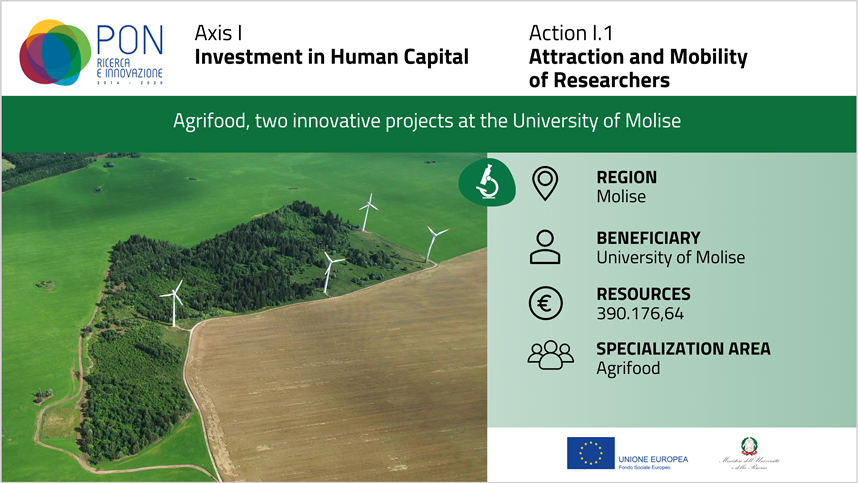Notizie correlate
Non ci sono notizie correlate.
Agrifood, Two Innovative Projects at the University of Molise

ITA | ENG
Projects
The research projects carried out within the Department of Agricultural, Environmental and Food Sciences of the University of Molise fall within the Agrifood specialization area and involve two researchers.
The first research study addresses the need to decrease the use of chemical fungicides to reduce losses in agricultural production caused by fungal diseases through the use of biological control agents (BCAs). Specifically, the aim is to identify the genetic/molecular mechanisms that make P. laurentii LS28 an effective BCA, capable of detoxifying mycotoxin patulin (PAT) in fruit-derived products.
The second research study focuses on the knowledge and history of sheep and cattle breeds to provide objective elements for the enhancement of authenticity and uniqueness as well as the marketing of products of animal origin in order to increase their competitiveness. The study also aims to identify the genomic regions and genes involved in determining different production characteristics and adaptation to different environments aimed at genetic improvement for quality and sustainability.
Financial Resources
The projects are funded by the NOP Research and Innovation 2014-2020 under Action 1.2 “Researcher Mobility”, Call “AIM- Attraction and International Mobility of Researchers” with a total budget of 390.176,64 euro for the recruitment of two researchers on fixed-term contracts.
Impact
The activities of the first research project are linked to a European patent, a potential driver of further biotechnological applications and patents, and addresses the demand for greater specialization by universities and the “limited propensity to patent protection” weakness. The project also complies with the guidelines on environmental sustainability and technological innovation of the national thematic areas and on environmental protection, and can be integrated with the areas of Health and Green Chemistry (use of agricultural waste to produce microbial biomass for formulated plant protection products) and Smart Factory (development of biosensors for PAT detection in the fruit processing chain).
The second study will generate knowledge to improve the quality and unique characteristics of food productions based on the use of native genetic resources. In addition, the project will highlight the objective elements of uniqueness and differentiation of the breeds (and therefore of the food products), providing useful knowledge for them to succeed in a market that is more and more inclined to recognize production area and history as a value.
31/05/2021








